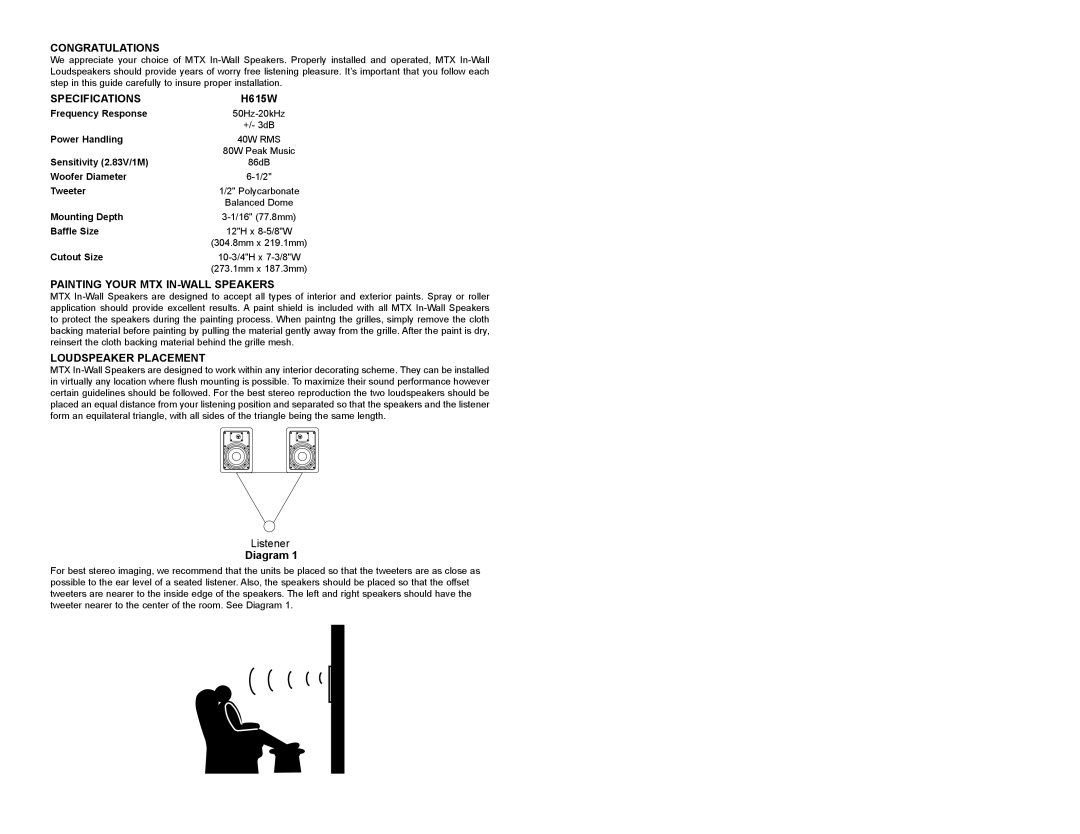CONGRATULATIONS
We appreciate your choice of MTX In-Wall Speakers. Properly installed and operated, MTX In-Wall Loudspeakers should provide years of worry free listening pleasure. It’s important that you follow each step in this guide carefully to insure proper installation.
SPECIFICATIONS | H615W |
Frequency Response | 50Hz-20kHz |
| +/- 3dB |
Power Handling | 40W RMS |
Sensitivity (2.83V/1M) | 80W Peak Music |
86dB |
Woofer Diameter | 6-1/2" |
Tweeter | 1/2" Polycarbonate |
| Balanced Dome |
Mounting Depth | 3-1/16" (77.8mm) |
Baffle Size | 12"H x 8-5/8"W |
| (304.8mm x 219.1mm) |
Cutout Size | 10-3/4"H x 7-3/8"W |
| (273.1mm x 187.3mm) |
PAINTING YOUR MTX IN-WALL SPEAKERS
MTX In-Wall Speakers are designed to accept all types of interior and exterior paints. Spray or roller application should provide excellent results. A paint shield is included with all MTX In-Wall Speakers to protect the speakers during the painting process. When paintng the grilles, simply remove the cloth backing material before painting by pulling the material gently away from the grille. After the paint is dry, reinsert the cloth backing material behind the grille mesh.
LOUDSPEAKER PLACEMENT
MTX In-Wall Speakers are designed to work within any interior decorating scheme. They can be installed in virtually any location where flush mounting is possible. To maximize their sound performance however certain guidelines should be followed. For the best stereo reproduction the two loudspeakers should be placed an equal distance from your listening position and separated so that the speakers and the listener form an equilateral triangle, with all sides of the triangle being the same length.
Listener
Diagram 1
For best stereo imaging, we recommend that the units be placed so that the tweeters are as close as possible to the ear level of a seated listener. Also, the speakers should be placed so that the offset tweeters are nearer to the inside edge of the speakers. The left and right speakers should have the tweeter nearer to the center of the room. See Diagram 1.

